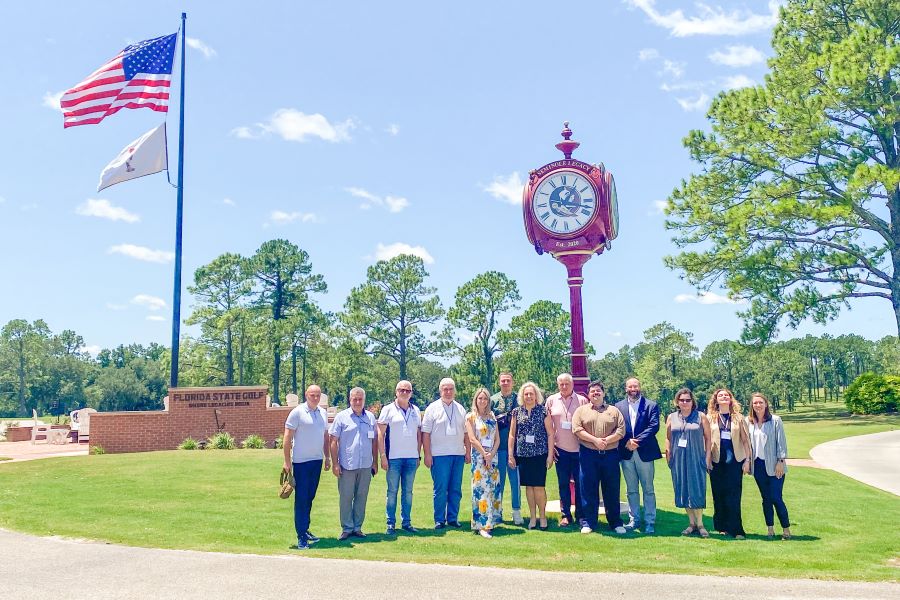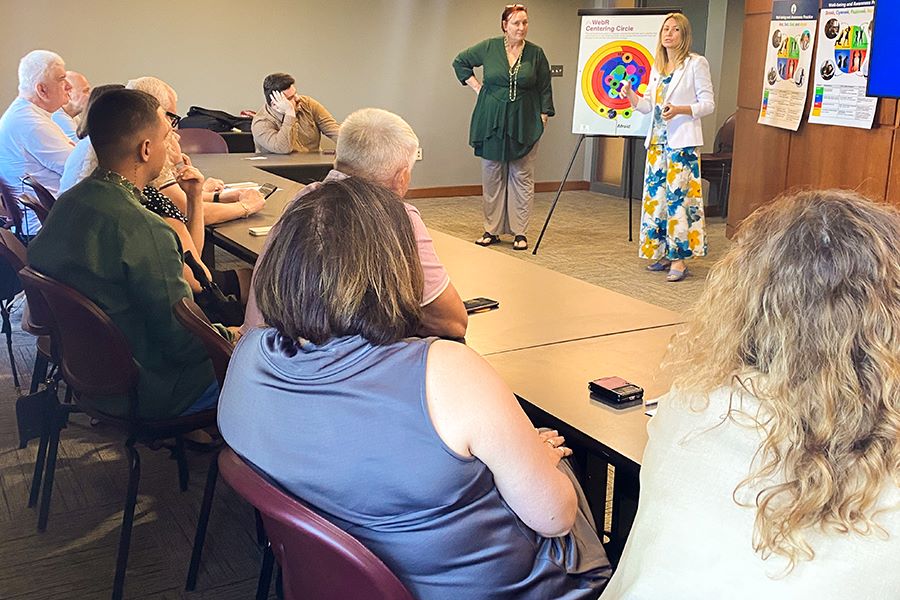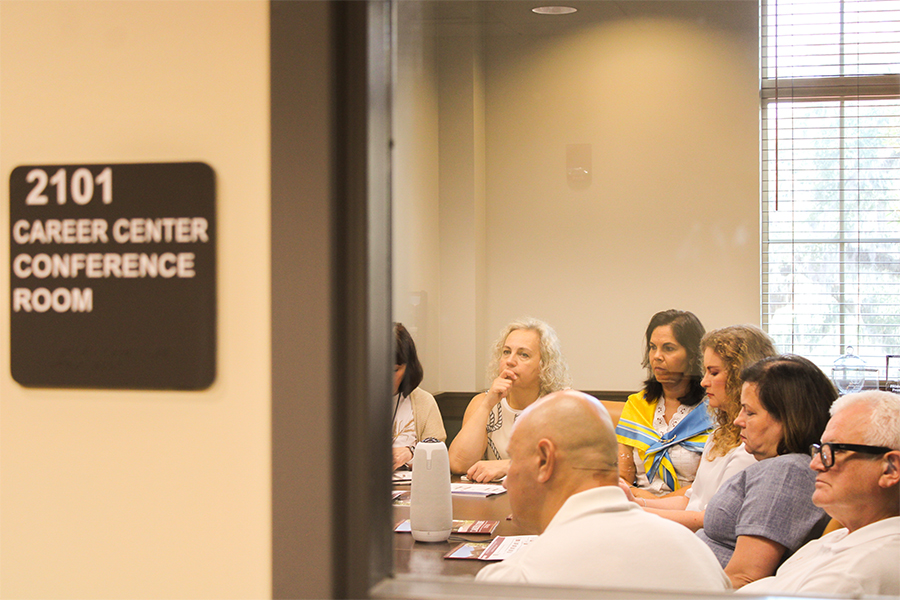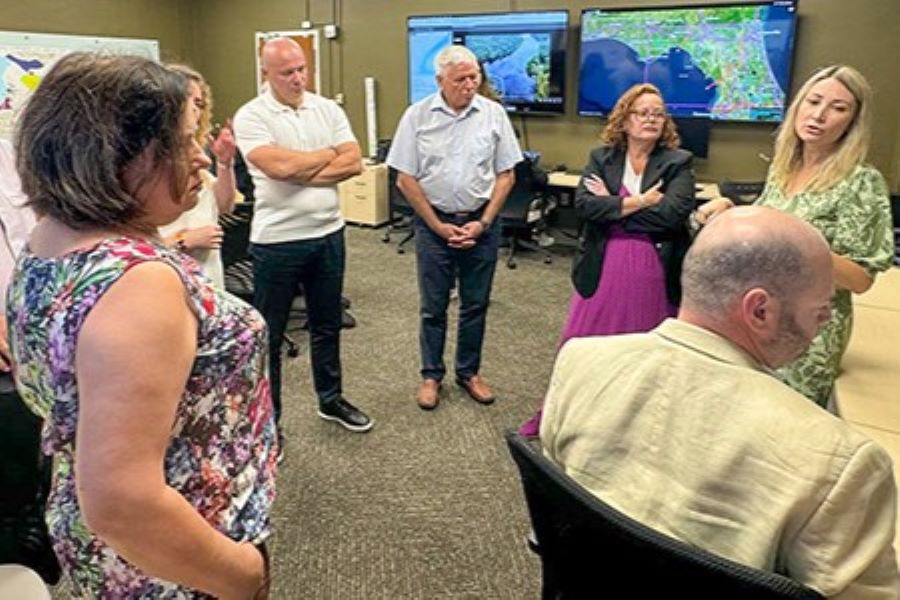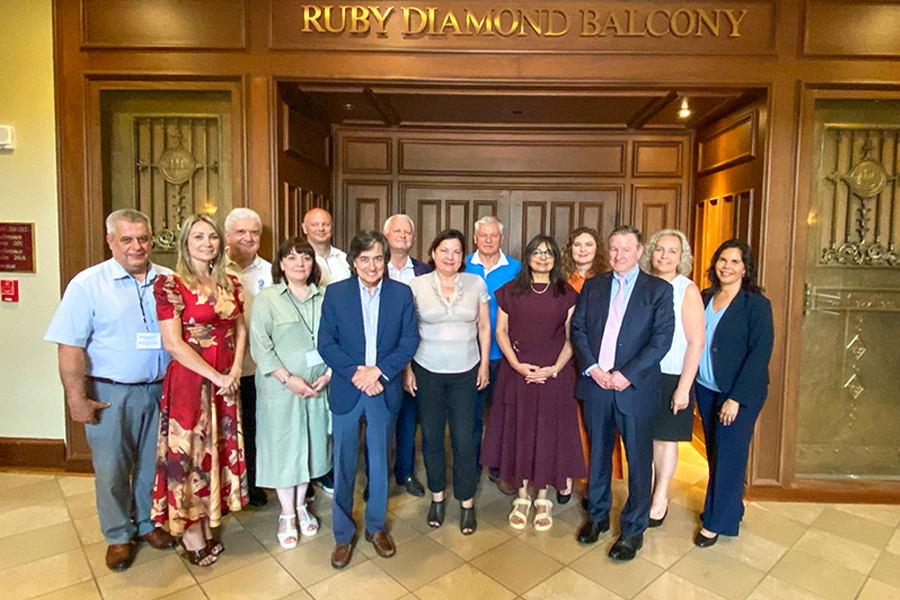
In early August, Florida State University’s Ukraine Task Force welcomed nine senior higher education leaders from Ukraine to learn how universities and community colleges can serve military veterans, people with disabilities and other vulnerable populations.
The Ukrainian delegation spent 10 days meeting with senior administrators, deans, professors and staff at FSU. They met with FSU President Richard McCullough, Provost Jim Clark, FSU Libraries, the Student Veterans Center and numerous other campus leaders and departments. The visit was made possible in part by funding from the U.S. State Department and the U.S. Embassy in Kyiv.
“We had a terrific meeting with the president and vice president of FSU,” said Svitlana Kretovych, a member of the delegation representing the Office of the President of Ukraine. “We discussed our problems and how Florida State University could help us. It was really impressive.”
The group discussed ways FSU serves military veterans and how higher education can be a tool for diplomacy.
“We had the opportunity to meet with the president of Florida State and also the provost,” said Roman Dadak, acting head of the Association of Colleges and director of the National Forestry and Wood-Technology University of Ukraine. “It was a great honor to have this meeting.”
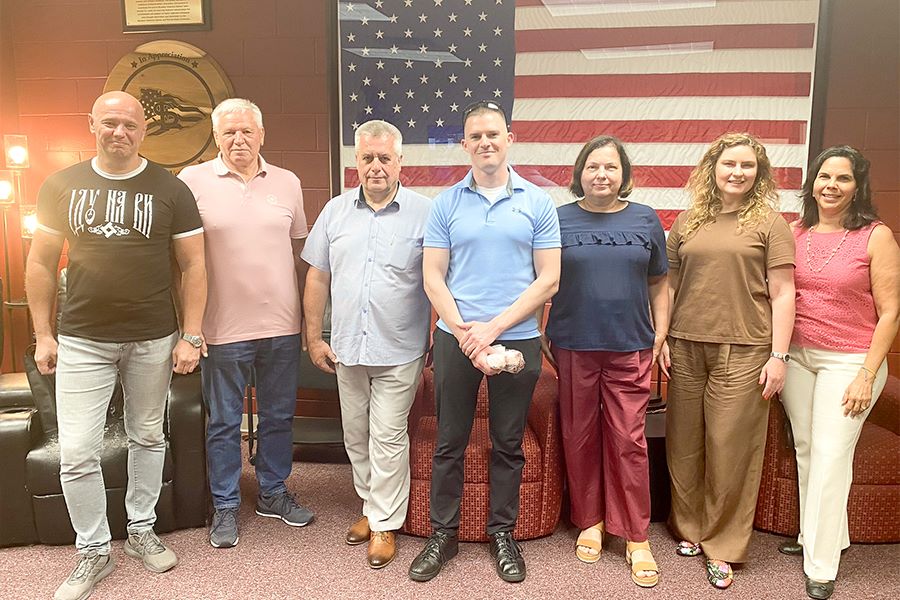
Eight of the nine officials had visited Tallahassee before through the Community College Administrator Program (CCAP) in 2016 and 2018.
Sponsored by the U.S. Department of State, the CCAP is a program of study for administrators from post-secondary vocational and technical institutions in foreign countries to see how institutions meet the local workforce demand of their communities through innovative educational programs. It is administered by the Learning Systems Institute (LSI) at FSU in partnership with Santa Fe College.
During their visit, the group toured the FSU Student Veterans Center, which provides programs and services designed to enhance the retention, graduation, and career-placement rates of student veterans, active military students and veteran/military dependents.
“One of the biggest challenges this country will face is how to serve military veterans, most of whom can only be demobilized now if they have acquired a major physical injury such as the loss of a limb,” said Vilma Fuentes, program director of FSU’s Ukraine Task Force.
The delegation also visited the Office of Veterans and Military Success Services at Santa Fe College in Gainesville and met with Santa Fe College President Paul Broadie II and Santa Fe Provost Nate Southerland. The guidance will help Ukrainian higher education officials determine the best way to serve the more than 1 million active-duty military members fighting to defend their country from Russian aggression.
“FSU and Santa Fe College, the two institutions that implemented the CCAP, have much to share,” Fuentes said. “They have distinguished themselves in the state and the nation for the high level of service they provide to American veterans.”
“The creation of a veteran center is needed in Ukraine because of the war with Russia,” said Kretovych. “After the war, it will be very important in the process of rebuilding Ukraine.”
Other key meetings centered on mental health and serving students with disabilities. Angi Yoder-Maia, director of the Resilience Institute for Strength and Empowerment (RISE) at FSU, held a session on healing-centered education. The group also visited The Career Center at FSU. On their final day in Tallahassee, they met with Amber Wagner, assistant dean of the Department of Student Support and Transitions and director of the Office of Accessibility Services.
“Another very important experience we had was about serving people and students with disabilities,” said Dadak. “FSU has a lot of different programs, and your spaces are even adapted for students with disabilities. Unfortunately, we do not have such tools and programs and spaces with inclusiveness and access for students with disabilities.”
This summer, FSU’s Ukraine Task Force hosted 15 Ukrainian educators who came to Tallahassee to build connections with FSU faculty and staff for long-term collaboration in joint research, shared pedagogy, course development and publication.
“It was my first time on this continent, as well as my first time in the United States,” said Dadak. “My experience of what was being delivered this week was incredible.”
The Ukrainian delegation also explored various short-term certificate programs offered at FSU and Santa Fe College that can be used to quickly retrain internally displaced people, military veterans and adults with disabilities. FSU’s programs in emergency management, entrepreneurship, visual disabilities and hospitality programs were among those featured during the visit.
“We used our time at Florida State to gather very important knowledge for Ukraine,” said Hanna Shchutska, director of the Kyiv College of Light Industry. “We will work together and build educatonal programs. We hope the future will bring peace and greatness.”
LSI is at the forefront of developing innovative solutions that bridge theory and practice in education. For 55 years, LSI has delivered systems that measurably improve the learning and performance of organizations and individuals in Florida and across the world.
To learn more about LSI, visit lsi.fsu.edu. For more information about FSU’s Ukraine Task Force, visit lsi.fsu.edu/fsu-ukraine-task-force.
